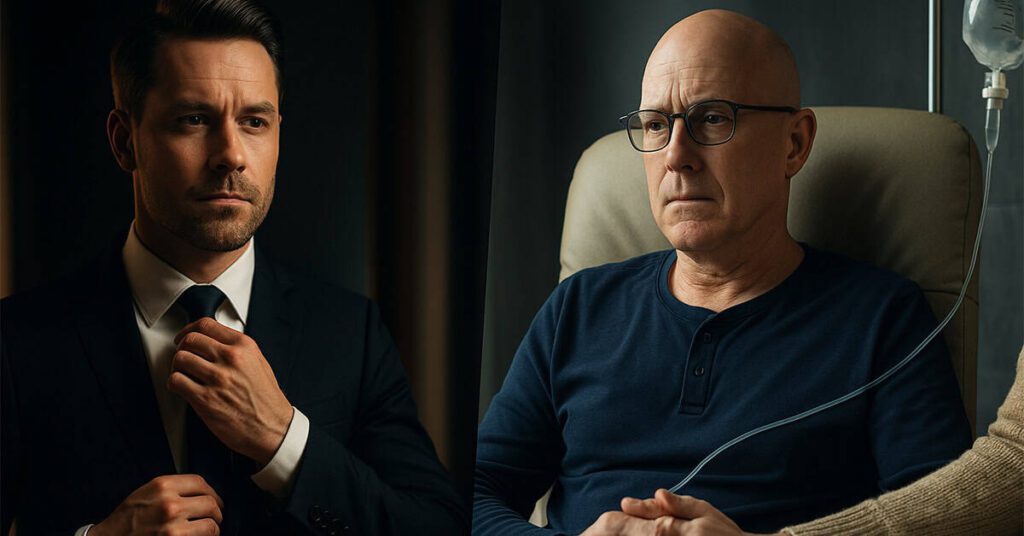Susan Patton doesn’t flinch. The so-called “Princeton Mom” came back to America Out Loud Pulse with a message sharpened by years of candor: appearance matters—more than we like to admit. She wasn’t talking about vanity. She was talking about survival in a world that judges, hires, promotes, and mates by sight.
“Men need to hold onto their hair,” she said, unmoved by the Wall Street Journal’s cautionary tone on finasteride. “Confidence starts there. Employers notice. Women notice. You feel better when you look better.”
To Patton, hair loss in men isn’t trivial. It’s symbolic—of control, of youth, of viability. As she puts it, “It’s not just about the follicles. It’s about the fight.” She connects the dots from job prospects to dating dynamics, from youthful confidence to midlife identity. She knows the terrain. Her sons—one bald, one not—have lived it.
Her perspective is bracing, even ruthless. Fat girls, she says, should get help early—surgical if necessary. “Because if you’ve been the fat girl in every classroom you’ve walked into, you carry that forever.” Her critics call it cruel. She calls it realistic. “Normalize obesity, and you normalize failure.”
She isn’t wrong. Society is visual. And cosmetic choices—whether finasteride, fillers, or laser lifts—are weapons in a modern mating and career war. The key, she says, is to know when to stop, to draw the line before artificiality overtakes authenticity.
Then comes Tom Masty.
Different fight. Same battlefield.
Tom’s not preserving youth—he’s trying to stay alive. Years into a relentless back-and-forth with cancer, he now faces a high-stakes round of immunotherapy. He calls it a “dance,” a game of “whack-a-mole,” where tumors vanish and reappear. Chemo, radiation, surgery—each round takes something. Now, they want to try the next thing, a therapy that trains their own immune cells to sniff out the traitors.
Dr. Bock compares it to a hostage rescue. Cancer, unlike bacteria, is us—gone rogue. So, treatments that hit cancer also hit everything else. “It’s like asking the FBI to shoot the guy with the gun without hitting the hostage,” he explains. “Sometimes they do. Sometimes they don’t.”
Tom gets it. He jokes, reflects, deflects. But he’s under no illusions. “They say I’ve got 27 copies of this one gene. Most people have none. That’s why they think the immunotherapy might work.” He hopes they’re right. But congestive heart failure and nerve damage mean every decision cuts both ways.
Where Patton calls for external correction—shape up, fix yourself, look sharp—Tom embodies the internal war. The broken cells don’t care what you wear. They only care about replication. Unchecked. Uncaring.
Still, the message connects. Whether you’re preserving your edge or trying to survive the next scan, the throughline is the same: hold on. Fight back. Be ruthless if you have to.
And find someone who tells you the truth.
Tom has that—his wife. “She’ll tell me when I’m dragging my feet when I shouldn’t be driving. When I need to fight harder.” In a culture obsessed with surface validation, that kind of honesty is rare. And priceless.
Maybe that’s the bridge: a world that shames truth but rewards illusion against a reality that demands clarity and grit. Patton says confidence breeds confidence. Masty proves it—just not in the way anyone expected.
He ends with this: “Don’t look for permanent solutions to short-term problems. There’s usually a step you can take to buy time. And that time is worth something.”
If Susan Patton reminds us how we’re judged, Tom Masty reminds us why we’re here.
Join us on weekdays at 5 pm ET weekdays on America Out Loud Talk Radio. Listen on iHeart Radio, our world-class media player, or our free apps on Apple, Android, or Alexa. Discover all the episodes on podcast networks, i.e., Apple Podcasts, Spotify, Pandora, TuneIn, Stitcher, and iHeart. You’ll find them the day after they air on talk radio, available on podcast. Extraordinary voices for extraordinary times.
